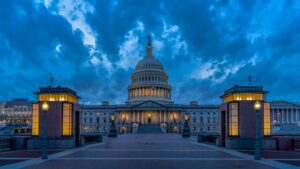
H-1B Reform
With no increase in US population growth in sight, reforms that help the H-1B visa program and other employment immigration run smoothly and efficiently are vital to the US economy. The Department of Homeland Security’s 2022 regulatory agenda includes proposed amendments to its regulations that govern the H-1B specialty occupation and F-1 student visa processes. One of the propositions is to alter the rules that define the employer-employee relationship within the H-1B program.
This proposed amendment is a potentially important one. Previously, the Trump administration tried to change the definition of the employer-employee relationship. However, courts repeatedly struck down the attempts as unlawful. Before the policy was struck down as unlawful, the change caused H-1B denials to skyrocket. H-1B denials have now significantly decreased after that policy stopped being enforced.
It is unknown what the Biden administration’s plans to change about the employer-employee relationship definition. However, if the change limits the definition similarly to the Trump administration’s change, or even to the pre-Trump policy, it is not unreasonable to expect litigation on the issue, as well as a potential increase in H-1B denials.
The Biden administration continues to show interest in changing the system in which wages for H-1B employees are determined. Like the employer-employee policy change outlined above, this policy change is a relic of the Trump administration. The Department of Labor, during the Trump administration, published a rule that created higher minimum wages for H-1B workers. This change also faced legal challenges and was eventually set aside by the DOL under the Biden administration.
The new administration, however, requested information from the public on ways to improve the Department of Labor’s wage determination system. This indicates, at a minimum, that the Biden administration is still interested in changing the H-1B wage determination system to potentially increase wages.
What do these potential changes mean?
If many of these reforms go into effect, prepare to need more documents evidencing the employer-employee relationship. Evidence like employment confirmation letters from end-clients, Statements of Work, and Master Services Agreements could become necessary.
Further, the Biden administration indicated their interest in increasing site visits to expand compliance review of H-1B participants. This means that compliance is more important now than ever. Increased review of compliance also means petitioners need to know when H-1B amendments are necessary.
H-1B Amendments need to be filed when there is a change in the employee’s worksite such that a new LCA would be required or if there is another “material” change in the terms of employment. If the Biden administration increases site visits and releases increased guidance on what changes are “material,” it is best to be prepared to file more H-1B Amendments.
Premium Processing Expansion
Premium Processing allows certain petitions to be processed faster by USCIS. Currently, Premium Processing is available for Form I-129 and Form I-140. However, it is likely that USCIS will expand Premium Processing services to include EAD applications and I-539 applications to change or extend status.
USCIS submitted a final rule pertaining to the expansion of Premium Processing to the Office of Management and Budget. This is one of the final steps necessary to implement a rule change. Once the Office of Management and Budget clears the rule, it can become effective.
Increased Filing Fees
The USCIS budget is primarily funded by the fees they charge to submit applications and petitions. Financial projections for USCIS show that the cost of operating USCIS will exceed their financial resources if fees are not increased. Therefore, it is very likely USCIS will increase fees in 2022. The present administration has signaled that such fee increases are likely to be borne more by the employment-based immigration benefit filings and less by family-based filings.
Where does Build Back Better Stand?
The Build Back Better bill, President Biden’s spending bill passed by the House but stalled in the Senate, is still on the table for Congress’s consideration. The potential immigration reforms contained in the bill are significant. The reforms would affect undocumented immigrants, as well as reduce the serious immigration backlogs that exist.
However, the Build Back Better bill has faced, and continues to face, some serious hurdles. The immigration provisions have encountered scrutiny from the Senate Parliamentarian—she believes the immigration provisions are too substantial and not closely tied enough to the spending aspect of the bill.
Even if Democrats can fit their immigration reform provisions into the bill with the Senate Parliamentarian’s approval, they still need 51 yes votes for the bill. Right now, Democrats do not have 51 votes. Democrats need to ensure they have all 50 Democratic senators on board (plus the Vice President to break the tie)—meaning they cannot lose the support of one senator. Currently, Senator Manchin of West Virginia does not support the bill in its current form. However, Senator Manchin has said he is still open to negotiations on the bill.
H-1B Employers Should Contact Shihab Burke LLC Immigration Lawyers Today to Discuss the H-1B Program
With plenty of uncertainty ahead for 2022, it is important to ensure you and your employees are always in compliance. If you are an H-1B Employer, you can find the guidance you need by speaking with an immigration lawyer. At Shihab Burke
LLC Immigration Lawyers, our team of
Columbus H-1B visa lawyers help employers and workers with the H-1B visa process.
Our legal team has offices located in
Columbus and
Dublin, Ohio, and
Michigan, and Texas, but we operate nationwide and can meet the needs of clients from all locations within the United States. To find out how we can help you, contact Shihab Burke
LLC Immigration Lawyers today by calling
(866) 665-0001 or by completing a
form on our website.

